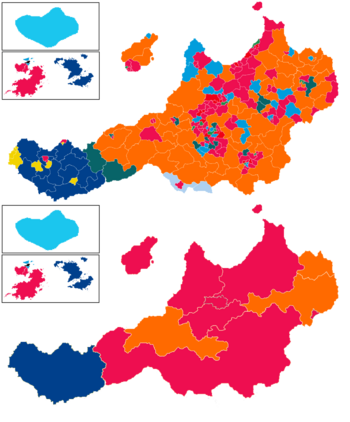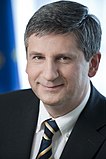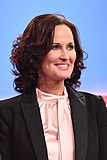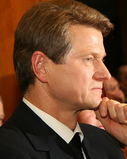2015 Weranian federal election: Difference between revisions
Britbong64 (talk | contribs) |
Britbong64 (talk | contribs) |
||
| Line 290: | Line 290: | ||
| {{Wp|Right-wing}} | | {{Wp|Right-wing}} | ||
| [[Fabian Breitscheid]] | | [[Fabian Breitscheid]] | ||
| {{Composition bar|6|545|hex=# | | {{Composition bar|6|545|hex=#00D5FF}} | ||
| {{N}} | | {{N}} | ||
|- | |- | ||
Revision as of 20:18, 7 July 2020
| |||||||||||||||||||||||||||||||||||||||||||||||||||||||||||||||||||||||||||||||||||||||||||||||||||||||||||||||||||||||||||||||||
All 545 seats to the Volkstag 273 seats are needed for a majority in the Volkstag | |||||||||||||||||||||||||||||||||||||||||||||||||||||||||||||||||||||||||||||||||||||||||||||||||||||||||||||||||||||||||||||||||
|---|---|---|---|---|---|---|---|---|---|---|---|---|---|---|---|---|---|---|---|---|---|---|---|---|---|---|---|---|---|---|---|---|---|---|---|---|---|---|---|---|---|---|---|---|---|---|---|---|---|---|---|---|---|---|---|---|---|---|---|---|---|---|---|---|---|---|---|---|---|---|---|---|---|---|---|---|---|---|---|---|---|---|---|---|---|---|---|---|---|---|---|---|---|---|---|---|---|---|---|---|---|---|---|---|---|---|---|---|---|---|---|---|---|---|---|---|---|---|---|---|---|---|---|---|---|---|---|---|---|
| Turnout | 32,985,790 (73.11%) | ||||||||||||||||||||||||||||||||||||||||||||||||||||||||||||||||||||||||||||||||||||||||||||||||||||||||||||||||||||||||||||||||
| |||||||||||||||||||||||||||||||||||||||||||||||||||||||||||||||||||||||||||||||||||||||||||||||||||||||||||||||||||||||||||||||||
 States coloured by largest party. | |||||||||||||||||||||||||||||||||||||||||||||||||||||||||||||||||||||||||||||||||||||||||||||||||||||||||||||||||||||||||||||||||
| |||||||||||||||||||||||||||||||||||||||||||||||||||||||||||||||||||||||||||||||||||||||||||||||||||||||||||||||||||||||||||||||||
The 44th federal election was held in the Weranian Confederation for the Volkstag (the lower house of the Bundestag) on the 22nd May 2015. All 545 members of the Volkstag were elected under a single non-transferable vote system in multi-member electoral districts. The election saw the governing Social Democratic Radical Party-Modern Centre Party emerge as the largest bloc but losing its absolute majority. Gains were made by almost all parties outside the governing coalition although none of them were particularly large. The election resulted in the continuation of the SRPO-PMZ government with support from two minor parties, the Weranic Section of the Workers' International and the Sotirian Democratic Homeland.
The election was called at the expiration of the previous Volkstag's term from 2011 to 2015. The five main parties - the SRPO, NKP, PMZ, DA and OSAI - had all changed their leaders during the parliamentary term, most dramatically when SRPO leader and incumbent Chancellor Ellis Koopmann had been ousted by her Foreign Minister, Viktor Oberhauser.
Despite the changes in leaders the election was widely regarded as one of the dullest in recent history. The outgoing government largely defended their economic record which had seen Werania through an economic recovery since the 2005 Euclean financial crisis. The opposition NKP after its disastrous result in the 2011 election was not seen as ready to hold government again. The NKP attempted to capitalise on the disunity within the government - particularly with the ouster of Koopmann - to regain lost ground, but its own internal infighting meant it's leader Günter Schaefer was not perceived as a credible candidate for Chancellor. The lack of support for the NKP meant smaller parties attempted to portray themselves as the main opposition force but none managed to stand out. The themes of the election included the economy, government infighting and corruption, migration and the Euclean Community although the campaigns lacked a consistent narrative.
The governing coalition lost only a handful of seats but enough to deprive it of a majority, forcing them to work with smaller parties who benefited from both the government's lukewarm popularity and the NKP's lack thereof. This was only the third time in Weranian history that a centre-left government was re-elected to a second term (after the 1954 and 1987 elections).
Turnout was 73.11%, a small decline from 74.73% in the last election.
Electoral process
Werania has since 1908 used an single non-transferable vote in multi-member districts to send 545 representatives to the Volkstag. the exception is Ostry, which elects a single representative on the basis of first-past-the-post. The current electoral boundaries were approved in 2010 by the Electoral Board, with boundaries being decided every 10 years based on census data. Should a party have 273 or more representative in the Volkstag, it has an absolute majority and could thus govern autonomously, without a coalition partner. The constitution can be amended with a supermajority of two-thirds, or 360 deputies.
Voters have to registrar to vote by the 20 April. In order to be eligible to vote one must be over the age of 18, be a citizen of Werania, have a permanent address in Werania and not be currently in prison.
Each party by convention nominates a single "chancellor candidate" (spitzenkandidat) that leads the party in debates, even if the party has multiple leaders. However only the largest parties spitzenkandidats - the NKP and SRPO - are considered to be likely to become Chancellor.
Background
The last federal election in 2011 saw a change in government from the National Consolidation Party-Reform Conservative Party coalition to one between the Social Democratic Radical Party and Modern Centre Party. The coalition was led by the SRPO Chairwomen Ellis Koopmann who became Chancellor and the PMZ leader Klaus Ngo who becoming vice-chancellor and Minister of Finance. Koopmann was the second female Chancellor after Rasa Šimonytė and Ngo was the first vice-chancellor of Coian descent.
The coalition came to power in the context of the aftermath of the 2005 Euclean financial crisis. As a response to the crisis the outgoing NKP-RKP coalition had implemented austerity policies to deal with Werania's large public debt, which was valued at a debt-to-GDP ratio of 94%. The SRPO-PMZ coalition committed to reducing the total debt burden and fiscal deficit through a mixture of steep tax increases and a retrenchment in public services with the intention of eliminating the structural deficit and reducing the public debt substantially by 2020.
The 2011 budget became controversial when the government reneged on a promise made during the 2011 election to repeal the 2009 Employment Law which had significantly deregulated the labour market and made it much easier to hire and fire workers, instead passing an amended version that made only light changes to the 2009 Law. The budget also attracted controversy over the introduction of a new tax rate on revenue earned above €1,000,000 annually with the tax rate being 65%. The tax attracted criticism as being an "attack on the wealthy" although the government justified it by saying tough measures needed to be implemented to deal with the debt and deficit.
In 2012 regional elections the SRPO performed worse then expected in Ruttland and Roetenberg, losing their place in government in the latter and failing to come first in Ruttland. However after the next budget saw value-added-tax slightly reduced the government's popularity rebounded; at the 2013 Herrstag elections the SRPO and PMZ only saw modest losses. This resulted in the NKP leader Wilhelm von Merkatz, who was on the right-wing of the party, to be forced to resign by the moderate wing of the party. The leader of the party's moderate wing, Günter Schaefer, became NKP federal president resulting in the NKP's polling numbers to recover.

In late 2013 government was placed under pressure when it became likely Werania's credit rating would be downgraded; as a result the government implemented a pension reform that aimed to further bolster government finances. The pension reform increased contributions rather then the retirement age; this saw a further drop in support although not as severe as during the 2011 budget. During the election campaign Chancellor Koopmann had announced her support for for same-sex marriage and adoption for LGBT+ couples; this was subsequently brought back to attention in early 2014 when Koopmann promoted the passage of a bill, the Marriage Equality Act, that would legalise same-sex marriage in Werania on a federal level (already being in place in several provinces). The bill passed with the support of the left in the Bundestag; however the right voted against it. Although acclaimed by LGBT+ activists the move polarised parts of Weranian society.
By late 2014 the SRPO had for over a year been behind the NKP in the polls. Koopmann in particular came from harsh criticism from parts of the media (especially those associated with the Eckhardt and Nord Communications media group) for indecision, arrogance and breaking promises although her supporters stated that much coverage surrounding her was sexist in nature. Nevertheless at a party meeting in September 2014 leading members from the centrist and soft left wings of the party - Lothar Holzmeister, Klaus Barchmann and Viktor Oberhauser - decided they no longer had confidence in Koopmann's leadership and filed a motion to remove her as leader. A vote held by the party's caucus saw 132 members voting for Oberhauser to become leader and 58 members in favour of Koopmann. Koopmann as a result resigned the Chancellorship with Oberhauser replacing her as both SRPO leader and Chancellor on the 24 September 2014.
As a result of the leadership change the SRPO's polling numbers saw a sharp increase regaining a narrow lead ahead of the NKP. As a result of Koopmann's ouster PMZ leader and vice-chancellor Ngo announced he would not contest the next election and would step down as PMZ leader although would remain vice-chancellor and finance minister until a new government was formed after the 2015 election. The PMZ elected Veronika Althammer as party leader on the 31 March.
Timetable
| 23 March | Chancellor Viktor Oberhauser announced his intention to dissolve the Volkstag and hold an election for the 22nd May. |
| 24 March | Holder of the Federal Presidency Charlotte II approves of the Chancellor's request to hold an election. |
| 27 March | Formal dissolution of the Volkstag; start of campaign period. |
| 18 April | Last day members of the public could register to vote. |
| 22 April | Last day in which members of the public could apply for proxy voting or postal voting. |
| 9 May | Last day for candidates to file nomination papers. |
| 22 May | Polling day |
| 29 May | New Volkstag Assembled |
Parties
Below are the parties of the outgoing 2011-2015 legislature who filed to run in the 2015 election.
Campaign
Opinion Polls
Results
| Party | Votes | % | Seats | ± | |
|---|---|---|---|---|---|
| Social Democratic Radical Party | 9,175,847 | 27.12 | 157 | ||
| National Consolidation Party | 9,086,742 | 26.81 | 144 | ||
| Modern Centre Party | 4,257,483 | 12.58 | 88 | ||
| Democratic Alternative | 2,557,493 | 7.56 | 41 | ||
| Weranic Section of the Workers' International | 2,385,637 | 7.05 | 35 | ||
| Sotirian Democratic Homeland | 858,472 | 2.54 | 29 | ||
| Green Party | 1,268,372 | 3.75 | 22 | ||
| Weranic Völkisch Freedom Party | 1,245,738 | 3.68 | 15 | ||
| National Coalition for Independence | 754,847 | 2.23 | 10 | - | |
| Aldman People's Party | 248,593 | 0.73 | 2 | - | |
| The Way of Courage | 184,736 | 0.55 | 1 | ||
| United Party | 15,473 | 0.05 | 1 | - | |
| Reform Conservative Party | 806,749 | 2.38 | 0 | ||
| Others | 345,637 | 1.02 | 0 | 0 | |
| Invalid/blank votes | 653,523 | – | – | – | |
| Total | 36,209,580 | 100 | 545 | 0 | |
| Registered voters/turnout | 46,474,226 | 78.95 | – | – | |









